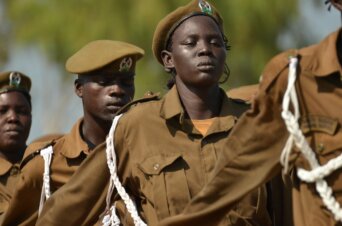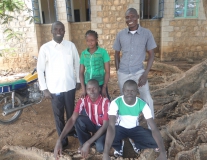- About
- Topics
- Picks
- Audio
- Story
- In-Depth
- Opinion
- News
- Donate
-
Signup for our newsletterOur Editors' Best Picks.Send
Read, Debate: Engage.
| topic: | Security |
|---|---|
| located: | South Sudan, Sudan |
| editor: | Bob Koigi |
Between July and September, Sudan has descended into anarchy, pitting armed groups against civilians, which has led to the death of over 70 people – among them IDPs and farmers in events that have also seen wanton plunder, destruction and burning of markets, shops and houses leading to mass displacement of ordinary citizens.
The areas under attack are controlled by Sudan security forces, which have been blamed for poor and uncoordinated responses fanning an already volatile situation. These series of happenings come as the United Nations-African Union Mission in Darfur, UNAMID, prepares its exit by the end of this month. Established in 2007 to restore peace and protect civilians while working with local security officers, the mission has to a great extent lived up to its mandate and has been credited with the relative peace the country enjoys.
But the pockets of violence and skirmishes that continue to erupt and the Sudan forces lacklustre response have brought into sharp focus the efficiency of the forces to protect civilians and act within the dictates of both domestic and international laws. Numerous eyewitnesses have given accounts of harassment by the same forces that are supposed to shield them from harm or blamed security agents for being too late in responding to distress calls whenever armed groups strike.
As the country goes through a volatile stage of peace restoration, it is clear that security officers are still not well equipped to manage the security situation. The United Nations Security Council should consider extending the mandate of the mission to ensure that transition is smooth and welcome, especially by the vulnerable civilians.
The African Union and the UN have a fiduciary duty of reminding the Sudan government and the security forces of their obligations under international humanitarian law and human rights laws and bringing to book perpetrators within its ranks. To pull out UNAMID at the height of growing tensions is to abandon the vulnerable Sudan citizens.
Image by Jaroslav Šmahel

